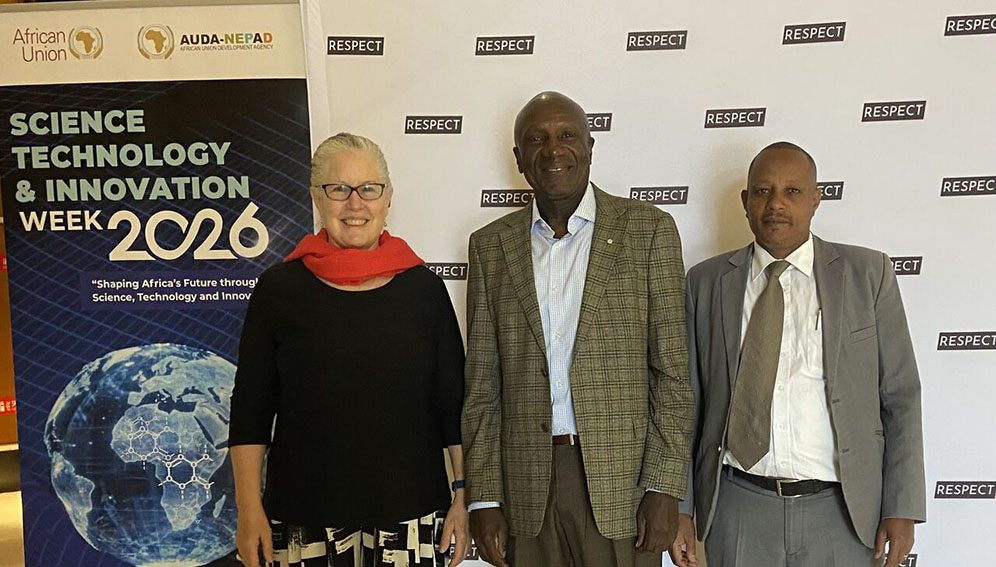SGCI News
Africa’s space sector, while valued at US$22.64 billion in 2024, is still in its early stages—but scientists say it holds significant promise for addressing some of the continent’s development issues….
Africa’s space sector, while valued at US$22.64 billion in 2024, is still in its early stages—but scientists say it holds significant promise for addressing some of the continent’s development issues.
In this episode of Africa Science Focus, reporter Michael Kaloki explores how space research and innovation are being used across the continent.
Mary Makuate, a researcher at Cameroon’s Ministry of Scientific Research and Innovation, shares insights from her experience using satellite data to develop digital maps for the humanitarian response to the 2023 earthquake in Morocco.
Susan Murabana, CEO of The Travelling Telescope Africa Ltd, talks about her efforts to bring astronomy to underserved Kenyan communities.
Her mobile telescope initiative introduces students and local residents to space, aiming to spark interest in science and technology.
And Daniel Okoh, a research scientist at Nigeria’s National Space Research and Development Agency, says Africa must strengthen its own space capabilities.
He tells us how global satellite models often underrepresent the continent, due to a lack of accurate local data, and calls for greater investment in homegrown technologies.
————————————————————————————————————
This podcast was supported by the Science Granting Councils Initiative which aims to strengthen the institutional capacities of 18 public science funding agencies in Sub-Saharan Africa.
Do you have any comments, questions or feedback about our podcast episodes? Let us know at podcast@scidev.net
Africa Science Focus is produced by SciDev.Net and distributed in association with your local radio station.
Related News
Building Africa’s science future: inside the SGCI alliance
As Phase 3 of the Science Granting Councils Initiative launches on the margins of the African Union Summit in Addis Ababa last week, the SGCI Alliance Chair explains why this moment marks a decisive turning point for African science. Cephas Adjei Mensah describes what is…
Open call: Support for science granting councils in Sub-Saharan Africa
The International Development Research Centre (IDRC), through the Science Granting Councils Initiative (SGCI), has launched a call for proposals to support science granting councils in Sub-Saharan Africa in the establishment and operationalisation of the Capacity Strengthening Hub under Phase III of the SGCI-3. The Hub…
SGCI phase 3: USD 42M boost for Africa’s STI agenda
It was an exhilarating moment as the Science Granting Councils Initiative (SGCI) Phase 3 funding announcement was officially made yesterday during the Science, Technology, and Innovation (STI) Week 2026, held in Addis Ababa, Ethiopia. The STI Week, organised by AUDA-NEPAD and the African Union and…
SGCI funded projects
Rwanda’s integrated approach to sustainable agriculture and nutrition
Project Titles & Institution Areas of Research Number of Projects being funded Project Duration Grant Amount In-Kind Distribution Council Collaboration with other councils





